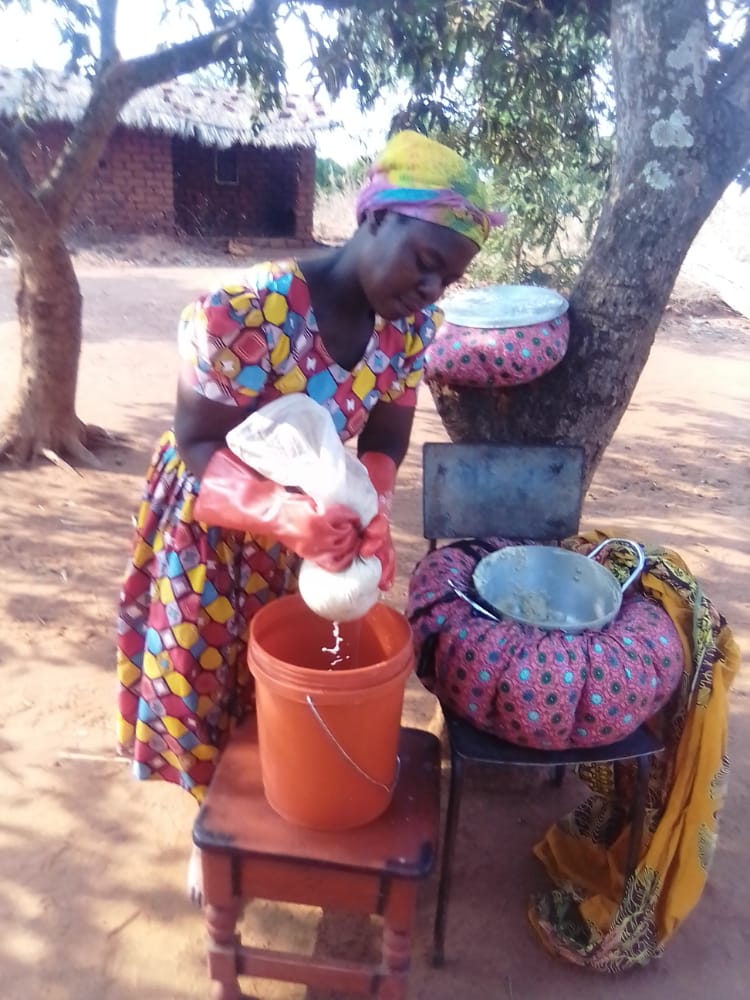
The Road to Prosperity
Joyce did not hold back when asked how soymilk processing has helped her family. As one of 45 smallholder women farmers selected to receive training and a soymilk processing kit, her answers were firm.
“Income. Household food security at last. The end to our monotonous diet. Better clothing for all of us, including school uniforms. More land to farm, and we can finally hire laborers. We can also support our extended family with basic items and food. And I’ve been able to save more for household necessities through my savings group.”
Like all the women soymilk processors, Joyce plans to grow her own soybeans to use at home and also grow and sell collectively with her marketing group. “I’ve grown them before but not in a group and not for soymilk. This is new to me and I wonder how I missed it.”
She said there is high demand for soybeans and soymilk in her area. The local way of making soymilk is too laborious and time consuming for women who are already overburdened with household chores and agriculture. The kit simplifies everything, and women and older children actually enjoy making the milk. The rewards in doing so are significant.
Households can produce over 50 liters per month. The extra revenue solves a lot of challenges, and the nutritional benefits to the health of the individual and the household translate into greater prosperity for the community as a whole.
Simple household income diversification initiatives like this one are easier to promote than bringing in new technologies that require heavy set-up and investments. The soymilk processing kits solved a problem – how to start successful small businesses to improve farm families’ health and finances – and complemented local marketing groups’ previously set goals.
Malawi Blantyre Program
Led by Catholic Relief Services and Local Partners District Agriculture Extension Coordinating Committee (DAECC) and Farmer Services Unit (FSU)
Story based on information from a brochure published by DAECC and FSU
